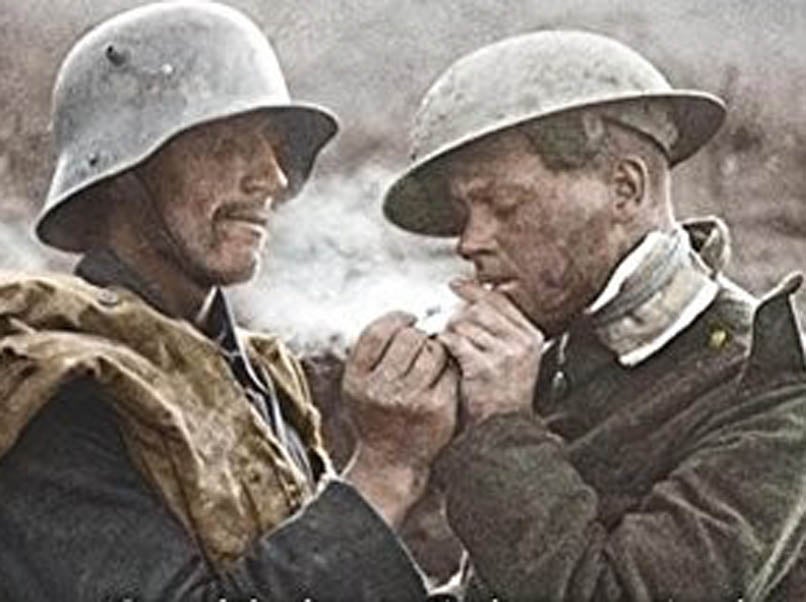Fritz and Tommy: Across the Barbed Wire, by Peter Doyle and Robin Schäfer - book review
Peter Doyle and Robin Schäfer share authentic voices of these men along the length of the Western Front 100 years on

At Beaumont-Hamel, in the Somme department of northern France, there remain some of the very few trenches to be preserved from the First World War. They are so close that it takes barely a couple of minutes to stroll from one front line to the other. Between July and November 1916, thousands of men lived, fought and died – in great numbers – in these scrapes in the ground.
Now, 100 years on, in Fritz and Tommy: Across the Barbed Wire, we hear the authentic voices of these men, and their friends and foes along the length of the Western Front, from the Channel to Switzerland.
Military historians Peter Doyle (for the Tommies) and Robin Schäfer (in Fritz’s corner) join forces to comb the letters and diaries from both sides to build a unique, and in some ways ground-breaking account of “the war to end wars”.
They have a rich seam to mine. The 1914-18 conflict was the first to be fought between huge armies of educated civilian conscripts – the Germans generally better educated than the Brits – with access to pens, paper, and a fully functional (if sometimes censored) postal service.
What emerges is a story common to both combatant nations. From the enthusiasm of the early days, through enlistment, training, the boredom of army life, the misery (but sometimes black humour) of the trenches, the obsession with food and tobacco, the joy of a parcel from loved ones, the fear and danger of combat, the randomness of death and injury, and the final return home for those lucky enough to make it.
This book reminds us that, almost to a man, the soldiers in both armies believed in the cause they were fighting for – home, family, a way of life, King/Kaiser and God/Gott. It seems simplistic, but surely they must have? How else could they have endured the hardship and the horror?
“Am I a soldier? I still feel like a recruit, an earth worker, a cheap labourer who does not eat much and who is always ready to do his duty. Every night I am on guard duty for two hours, followed by another two to three hours in daytime. Every day I am digging trenches and dug-outs, I sweep the duckboards, eat what is available and sleep on old hay in a stinking dark dug-out. I provide the lice with plenty of food and watch the rats and mice eat mine. But I will not complain, after all, there is a war going on.”
Private Nikolaus Seitz is German, a Fritz in the popular parlance of the time, but he could just as easily be a British Tommy. With this trans-national contribution to the Great War canon, Doyle and Shäfer provide valuable new insight into a conflict that still fascinates, intrigues, and appalls.
The History Press £20
Subscribe to Independent Premium to bookmark this article
Want to bookmark your favourite articles and stories to read or reference later? Start your Independent Premium subscription today.

Join our commenting forum
Join thought-provoking conversations, follow other Independent readers and see their replies